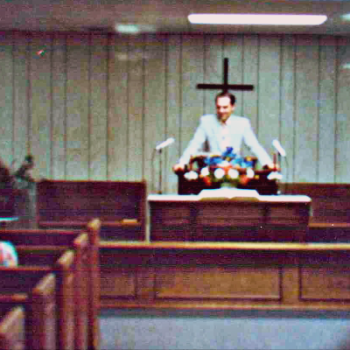In last week's column I spoke about some limitations in the traditional views of religion and science. This week I'll elaborate and discuss the basis by which religious and scientific opinion is formed.
We can go about our daily business. We can think that politics, economics, wars, and social interactions are the things that most affect our lives, but that is a misperception. Everything begins with the individual. All the greater movements of the world and societies occur because of beliefs that start in the mind of the individual. The mind of the individual is largely shaped by the collective, accumulated knowledge of human history. Knowledge in turn derives from three primary sources -- sensory experience; logical reasoning as in science; or intuitive revelation, which is related to abstract or creative thinking. This last form of knowledge is more tied to religious and spiritual expression.
Objective human knowledge came through practical observation of the world around us, first by empirical observation through the senses, and later by various forms of reasoning. But parallel to this objective form of knowledge was a subjective source that was more abstract and intuitive. This allowed early humans to sense rhythms of the earth and experience things in such a way as to give rise to art and abstract concepts such as gods, spirits, and other representations of unseen forces.
Distinction between Spirituality and Religion
Religion is derived from this subjective knowledge just as early science derived from the objective forms above. But here's the catch. Because intuitive information is subjective, as it is passed from the sage or prophet to the masses, it is susceptible to distortion. Prophets spoke the heart of God but their followers started religions. Not having the prophet's direct experience, the followers had to interpret. This left room for misunderstandings and the selfish agendas of mass mind thought. The spiritual knowledge revealed by the prophet became encased in dogmatic distortions, usually to gain power or control by one class of people over another.
So this is the main distinction between spirituality and religion: true spirituality is a personal journey and a personal experience while religion is something based on faith in the dogmas and teachings of others.
Old Religion v. Old Science
The simplistic traditional religious conception of God as a bearded old emperor on a throne in heaven dispensing stern justice for our sins or rewards for our good deeds was greatly eroded in the last century by the discoveries of materialist science. Unfortunately, this liberation from a limiting religious concept was replaced by an equally limiting scientific concept. Materialistic science developed over the past few centuries using a combination of rationalistic deduction and empirical observation of the properties of matter and material organisms. The central notion of materialist science is that creation, life, and reality arise from and can be explained by the interaction of physical particles. In other words, matter is the "be all and end all" of existence.
The view says that particle interaction gives rise to molecules that combine to form not only planets and physical laws, but also simple organisms. These organisms continue combining in greater complexity culminating in human beings. Consciousness is explained as a byproduct of the neural activity of a physical brain. One thing to note: in this scheme of creation, no adequate theory has explained how organic life evolved from inorganic particle matter. Scientists either ignore this issue or explain it away by dubious (and un-scientific) suppositions.
This materialist picture of creation is a now basic orientation or worldview. It expresses itself in many forms, but three scientific theories in particular stand out as the cornerstones that shaped the modern human mind. Newton defined the laws of physics that described a mechanical nature of fixed material objects interacting in a solid, material universe. Descartes introduced a dualist philosophy that said mind and matter were separate and distinct phenomena. In biology, Darwin's theories displaced the notion of a Creator with the concept of species evolving from lower forms in greater complexity with the chain reaching its peak in human beings.
Next week, I'll discuss how science was able to dismantle religion and begin to talk about a Third Way of understanding life.
12/2/2022 9:02:28 PM





